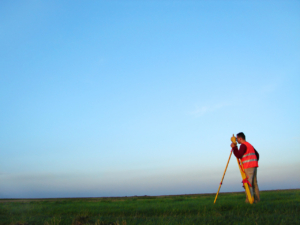Opponents of the MVP Southgate project have been busy spreading misinformation about this important proposed infrastructure line. Here are some of the most common questions circulating about the project, along with the facts about what’s really going on.
Question: Is the MVP Southgate project being built to export gas overseas?
Fact: The MVP Southgate project is far from the coast and even farther from the nearest LNG export facility. Furthermore, MVP Southgate has not filed for the federal Section 3 authorization needed to be able to export natural gas. The MVP Southgate project team has no plans to file for this authorization.
The MVP Southgate project is being built to provide low-cost supply access to natural gas produced in the Marcellus and Utica shale regions for service delivery to Dominion Energy North Carolina (formerly PSNC Energy) customers, as well as existing and new end-user markets in southern Virginia and central North Carolina. DENC is a local distribution company and is the anchor shipper on the MVP Southgate project. It has demonstrated to the North Carolina Utilities Commission that the MVP Southgate project offers the best-cost option for providing natural gas to its customers.
Question: Will drilling under the Dan River and other waterbodies require the use of toxic drilling mud.
Fact: The project team will use water-based drilling mud, typically consisting of inert clay like bentonite and water. Contractors will be limited to use of additives that are NSF/ANSI Standard 60 compliant. This is the same accreditation used to certify additives for drilling water wells. This attests that any additives meet the high HSE standards intrinsic to water well fluids and ensures no harm to local drinking water supplies.
Question: Is the epoxy coating used on the pipeline toxic?
Fact: Fusion-bonded epoxy coatings have been used in various applications since the 1960s. This includes being used to line the interior of pipes in public drinking water systems as a measure to inhibit corrosion of the steel pipes. Fusion-bonded epoxy coatings have been studied extensively, and we are unaware of any evidence supporting claims of risk to human health or the environment.
Question: Why are some people saying that studies show this project isn’t needed?
Fact: Recent opposition-funded studies have provided flawed conclusions based on incomplete data. The North Carolina Utilities Commission regulates public utilities in North Carolina, including local gas distribution companies such as DENC. In 2018, DENC (formerly known as PSNC Energy) demonstrated to the NCUC that MVP Southgate offers the best-cost option for providing the natural gas that its customers demand. The company’s application included public and nonpublic, confidential data, which allowed for a full and thorough analysis. The NCUC approved DENC’s application.
Question: Is construction of a natural gas pipeline uniquely dangerous?
Fact: The construction sequence for a natural gas pipeline closely follows the sequence for any other type of pipeline, whether it is designed to carry wastewater, drinking water or hazardous materials. The sequence involves tree-felling, clearing, grading, trenching, stringing and welding pipe, lowering pipe into the trench, backfilling and restoration. See this information sheet for more details.
In areas where blasting is required, crews use small, controlled charges that are applied after a rigorous and scientific analysis. This is a highly technical process performed by professionals in order to avoid impacts to groundwater. At waterbody crossings, any dams used to facilitate construction are released in a very slow, deliberative and controlled fashion to minimize turbidity. These are common practices used routinely in construction of various types of pipelines.
Question: Does this project pose a serious threat to the Jordan Lake watershed and the Haw River?
Fact: Hundreds of miles of pipelines, including natural gas pipelines, have been constructed and operate safely today within the Jordan Lake watershed. This includes natural gas and hazardous liquids pipelines that run directly under the Jordan Lake itself.
The MVP Southgate project team is committed to building this project in a safe, responsible manner, and has worked diligently with state and federal agencies to minimize potential impacts associated with construction and operation. In wetland areas, the project’s temporary right-of-way will be narrowed from 100 feet to 75 feet. Additionally, the Federal Energy Regulatory Commission noted in its Draft Environmental Impact Statement that the project team would implement specialized wetland construction procedures within wetlands. These measures include:
- using one traffic lane for construction equipment in non-saturated wetlands;
- using low ground pressure equipment or equipment/timber mats to prevent rutting or soil mixing;
- storing all hazardous materials, including fuels, chemicals, and lubricating fluids, a minimum of 100 feet from any wetland boundary;
- prohibiting parking or refueling of vehicles within 100 feet of a wetland unless the on-site EI determines that there is no practicable alternative and secondary containment structures are used;
- restoring pre-construction contours to maintain the original wetland hydrology; and
- prohibiting the use of herbicides or pesticides within 100 feet of wetlands or waterbodies except as specified by the appropriate land management or state agency.
Following construction, the project team also has committed to successfully revegetating all disturbed wetland areas.
Read more about the facts of this important project in this document and this document, which address the many myths about the project. And click here to read more FAQs about the project.








